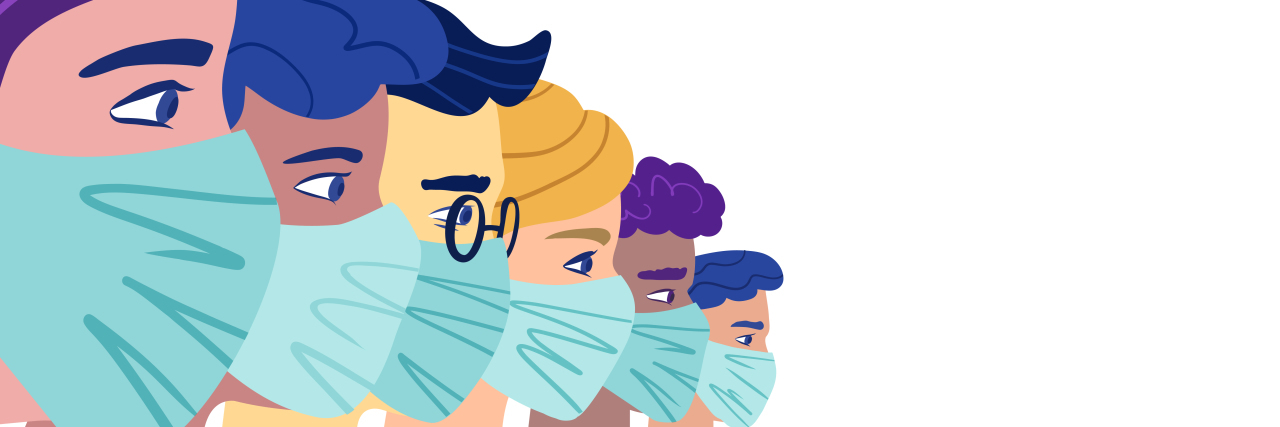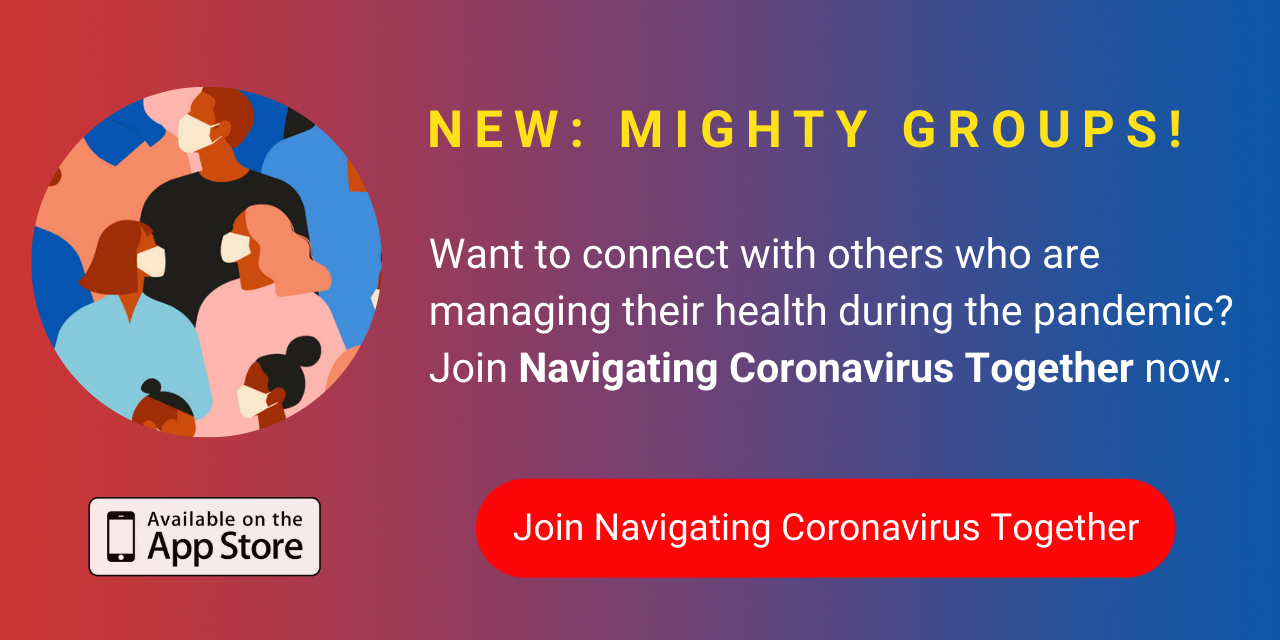Most people living with chronic illness have to learn about pacing. Eventually, everyone has to learn pacing, but healthy people can sometimes put it off well into middle age (and beyond). It seems to me that America is having a pacing problem right now with regards to COVID-19 and our attempts at reopening.
Let me explain a little about how pacing works for me and how I learned it when I became chronically ill. Growing up I was always a hard worker. My grandparents on my dad’s side were all immigrants and my mom’s side is filled with hard-working farmer types. Working hard was a big part of my identity. I believed in the American dream of pulling yourself up by your bootstraps. I started working at 14 and worked my way through college. After college I had two jobs, often working 12-hour days. I was proud of myself for working so hard. And then I got sick.
It started with IBS. Suddenly I couldn’t feed myself and I couldn’t sleep due to abdominal pain and nausea. I had to quit my part-time job and I could barely make it through my full-time job. I spent all my time either preparing for work, working, or recovering from work. It was all I could do to keep that job. Lots of people have seasons of life like that, when times are hard and you are just getting by. But it never ended for me. It wore me down psychologically and physically until I broke. My first breakdown was about seven months into being sick constantly. I was physically exhausted, but more than that, I was psychologically beaten down.
And here’s where I want to talk about pacing. I had to relearn how to do virtually everything, including relearning how to feed myself. With chronic illnesses, people often have to give some things up entirely and find new ways to do other things. For me, I had to totally revamp how I nourished my body. I remember one winter when the only food I could eat without feeling sick was rice. So I would mostly subsist on rice and then a few times a week I would force myself to eat other things I knew my body needed and then just curl up in a ball for the rest of the night until the nausea passed.
The hardest part of all of this was that the landscape was constantly changing. One day I could eat a certain food, and then the next day it would make me sick. I had to relearn other things too, such as how to gauge my own energy, how to interact with doctors now that I had a chronic condition, and how to manage relationships with friends and family with my new reality.
Does any of this sound familiar? With this pandemic, the whole world has had to give some things up and find entirely new ways to do other things. The landscape keeps changing and we never know what to expect for the future. We have to interact with each other in different ways than we used to.
Next comes the part where I tried to do more than I could or should do. I wanted so badly to be healthy that I ignored the realities of my new situation. And I suffered for it. One time, later on after getting very sick again and being diagnosed with POTS, I tried to go hiking with my family. I had been working for six months to regain some level of activity. I had joined a gym and I was swimming and finding ways to exercise that didn’t make my POTS worse. I was doing the exercise protocol given to me by my doctor. I thought surely six months of work would be enough to go on some hikes.
For those unfamiliar with POTS, it is a neurological condition with no cure and no set treatment plan. Exercise and lifestyle changes can help to alleviate some of the symptoms but it is not, by any means, a cure. When it came to hiking, I went on a hike designed for another member of the family who was actively going through chemo. Surely I can keep up with the guy with cancer, right?
I made it through that first hike barely and then I crashed. I spent the vast majority of the next three weeks laying down and sleeping. Three weeks of recovery for one morning’s worth of activity. All because I so desperately wanted to be able to do the things I loved before getting sick, so I ignored my new reality. I’m not sure I can describe how heartbreaking it was to discover that I just could not do many of the things I loved.
America is in that position right now. We desperately want this pandemic to be over. We desperately want to go back to some kind of normal. Something that resembles the world before all of this. We want this so much that many people are in denial about the situation we are actually in. This pandemic is not over. We never even got out of the first wave of this pandemic. But we are trying to will it to be over. And it won’t work.
We have overdone it and now we are beginning to see the consequences of those choices. Cases are rising again nearly everywhere. Reopening plans have had to be halted and in some places reversed. People are dying as a result of our denial and we need to do better.
There has been some progress, though. There is a new normal out there for us to find. For instance, we now know that wearing masks or facial coverings reduces the spread of the virus dramatically. We can make the adjustment to wearing masks in public. That’s the name of the game: adjustments. We find better ways to do things and we adjust. We don’t have to give up everything we love, but we will need to do most things differently.
Personally I used to play board games with friends often and I miss that. But we have adjusted. Now we have a weekly video call where we can chat and catch up and then we can play games together through our phones. It’s not the same as before but it is safe. It turns out chronically ill people have been making some of these adjustments for years. We have already been maintaining relationships primarily through the phone or internet rather than in person interactions. Now everyone has to do this. Rather than thinking of your chronically ill friends as extreme examples because they are high risk, maybe start following their lead.
We must get past our denial of this situation if we want to have any hope of establishing a new normal. We have to accept that we aren’t going back to the same world we lived in before COVID-19. At some point, COVID-19 will no longer be our biggest concern, but the world we will live in when that happens will be a different one than the one we lived in before it.
Once you accept the reality of this situation, you can start to build. You can find ways to have relationships with people in safe ways. You can find safer ways to engage in economic activities. You can find safer ways to exercise. This isn’t going to look like a packed gym or a crowded bar. But we will find ways to have meaningful relationships and interactions with people. We will find ways to make the economy work. We will find ways to live a healthy lifestyle with the different resources currently available to us. The great thing about humans is how truly adaptable we are. We will adapt to this, and we will live through this time. I hope you will each do your part.
For more on the coronavirus, check out the following stories from our community:
- The Problem With Saying ‘Only’ the Elderly and Immunocompromised Will Be Affected by COVID-19
- If I Get COVID-19 It Might Be Ableism – Not the Virus – That Kills Me
- How America’s COVID-19 Response Is Exposing Systemic Ableism
- Why I’m Worried About Rationing If My Child With Down Syndrome Gets COVID-19
Getty image by Lena Datsiuk.


